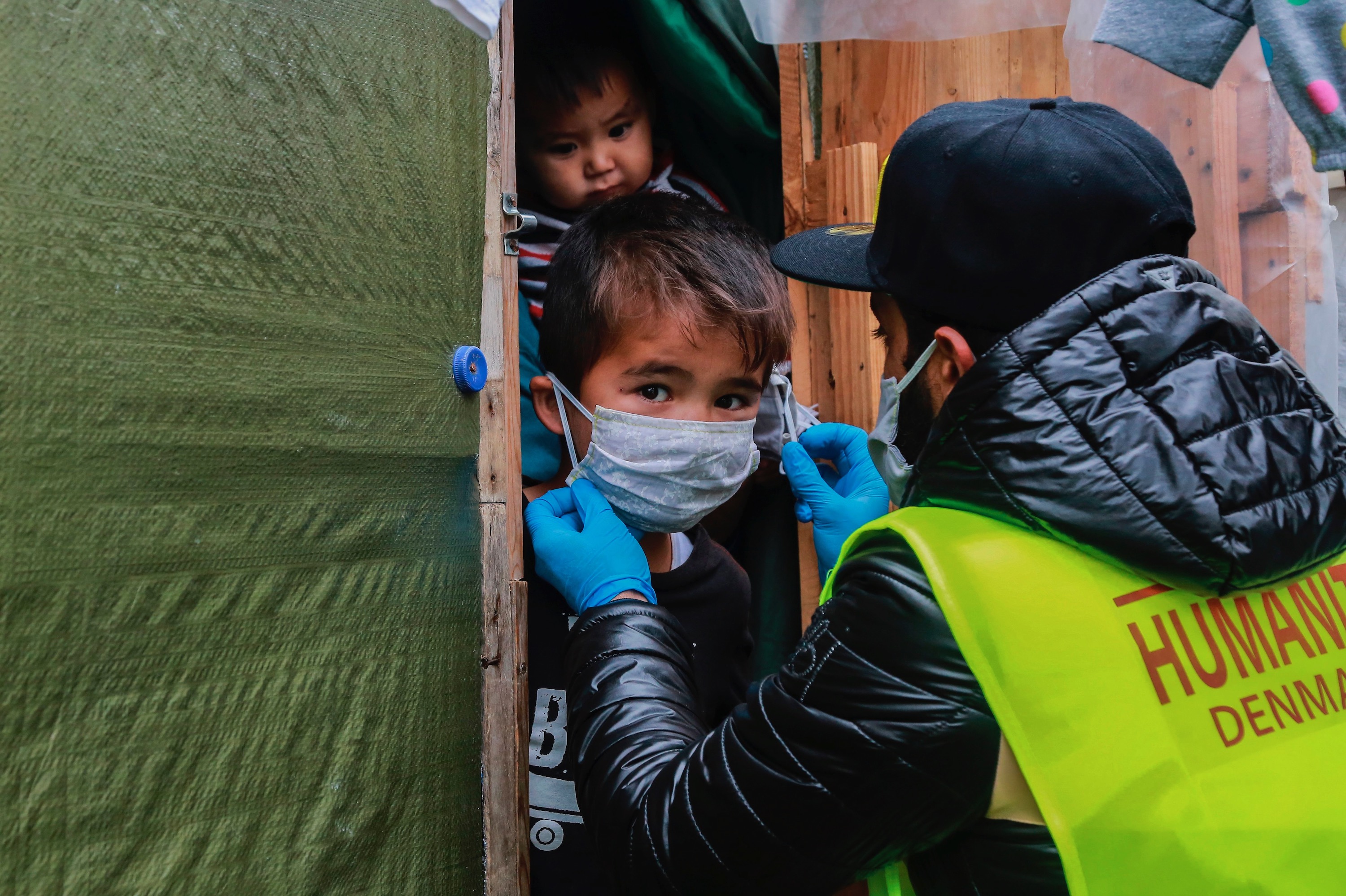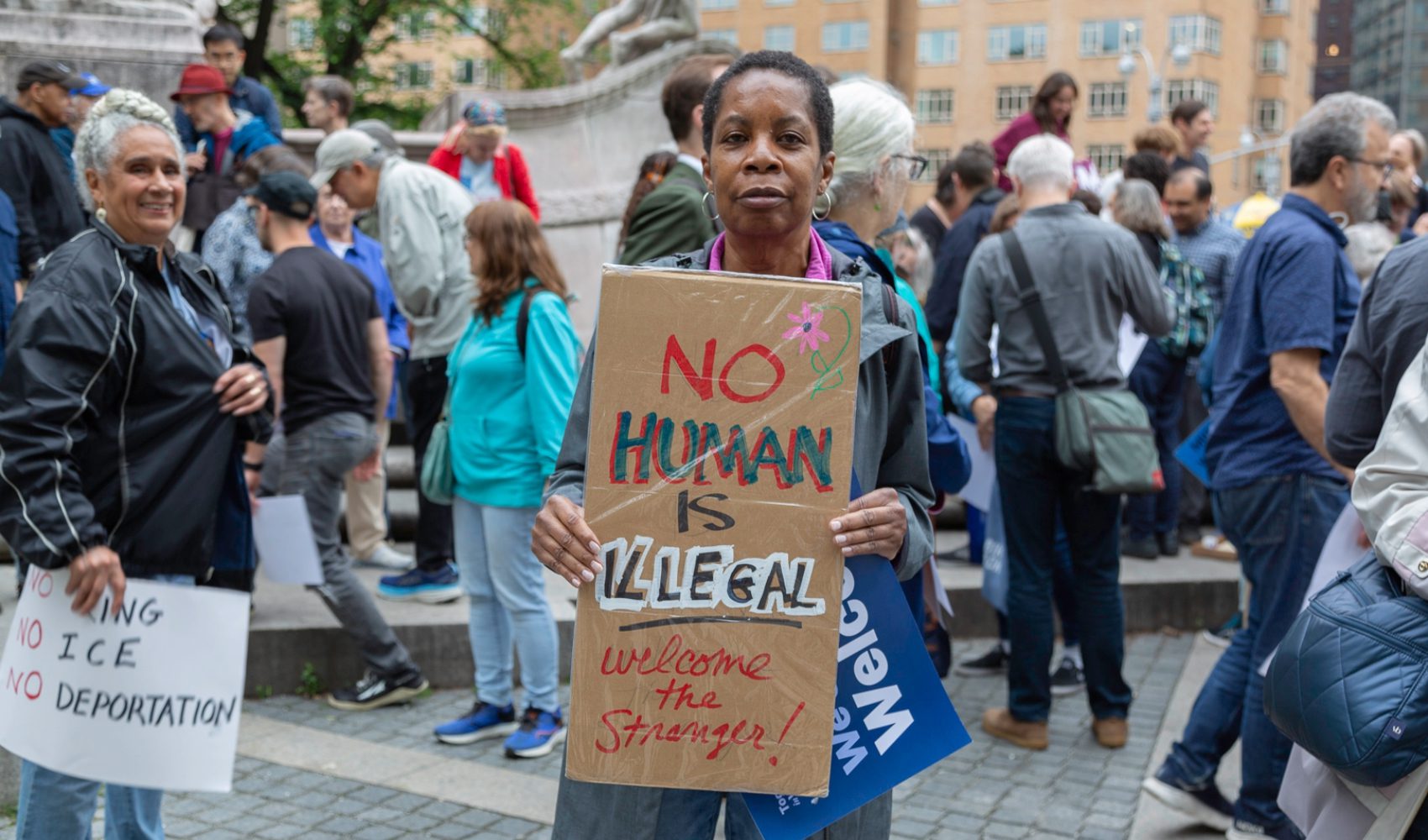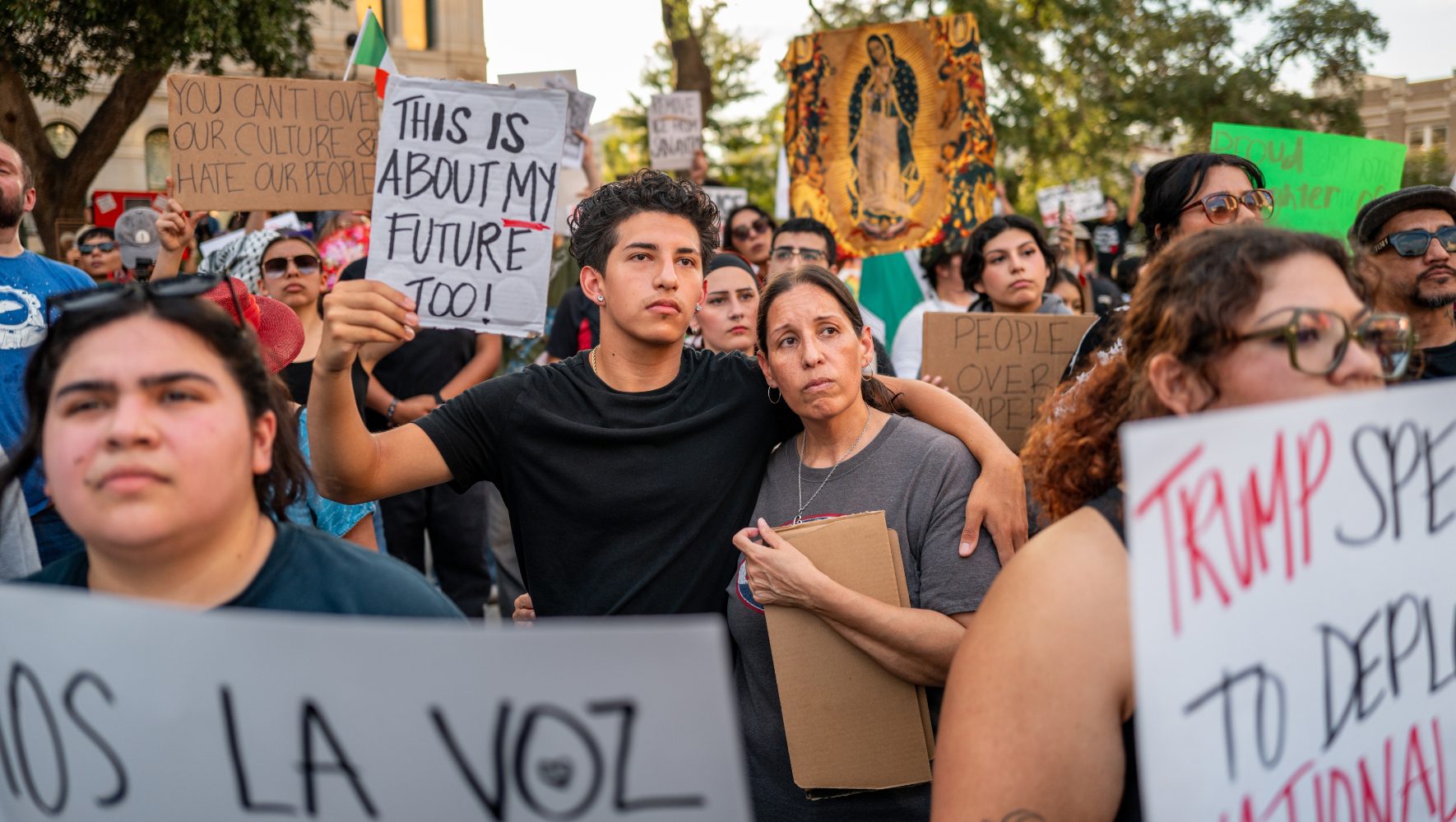As COVID-19 Responses Threaten Refugee Rights, HIAS Pushes Back
By Max J. Rosenthal, HIAS.org
Mar 30, 2020

A member of Team Humanity, an NGO, shares handmade protective face masks with migrants and refugees at the Moria refugee camp on the Greek island of Lesvos on March 28, 2020.
(Manolis Lagoutaris/AFP via Getty Images)
Amid the COVID-19 outbreak, some countries are using the fear of coronavirus to restrict the rights of refugees and asylum seekers. Others are simply ignoring the health and economic risks the disease poses to displaced people. As HIAS staff members around the world find safe ways to deliver vital services and care for clients, they are also fighting for the needs and rights of refugees and asylum seekers in the countries where HIAS operates.
The situation in Greece is particularly dangerous. Thousands of refugees in the country are living in overcrowded camps where there are few basic services and a high risk of disease transmission. On March 17, the Greek government placed the camps on the Greek islands on lockdown, trapping more than 37,000 people inside without allowing access for the aid groups that help keep them safe.
HIAS has joined 20 other humanitarian organizations in demanding that Greece decongest the camps and provide refugees their rightful access to basic health and safety. “In these hard times, no one should be left behind,” said Vassilis Kerasiotis, HIAS’ country director in Greece. “It is not only a moral but also a prudent thing to do, since the fates of asylum seekers as well as those of the locals are inevitably bound together in the face of the pandemic.”
In Israel, a countrywide lockdown has taken a deep toll on asylum seekers. Many of them have lost their jobs because of the economic fallout of COVID-19 and government-mandated movement restrictions. Their problems are compounded by Israel’s Deposit Law, which requires companies that employ asylum seekers to withhold 20 percent of their wages and only return them to employees if they leave Israel.
With asylum seekers now desperate for money to support their families, HIAS and other aid agencies are lobbying the Israeli government to release the wages withheld by the Deposit Law. The government is now considering the proposal.
HIAS is also advocating for refugees and asylum seekers in the United States. We are working to make sure they are covered by COVID-19 relief legislation, asking our supporters to speak up on their behalf, and pushing to end border policies that endanger the lives of displaced persons, among other actions.
As more countries take measures to stop the spread of COVID-19, HIAS staff will continue advocating for the rights and safety of the displaced in all of the 16 countries where we operate.
You can follow all of the latest news about HIAS' work during the coronavirus on our COVID-19 response page.


